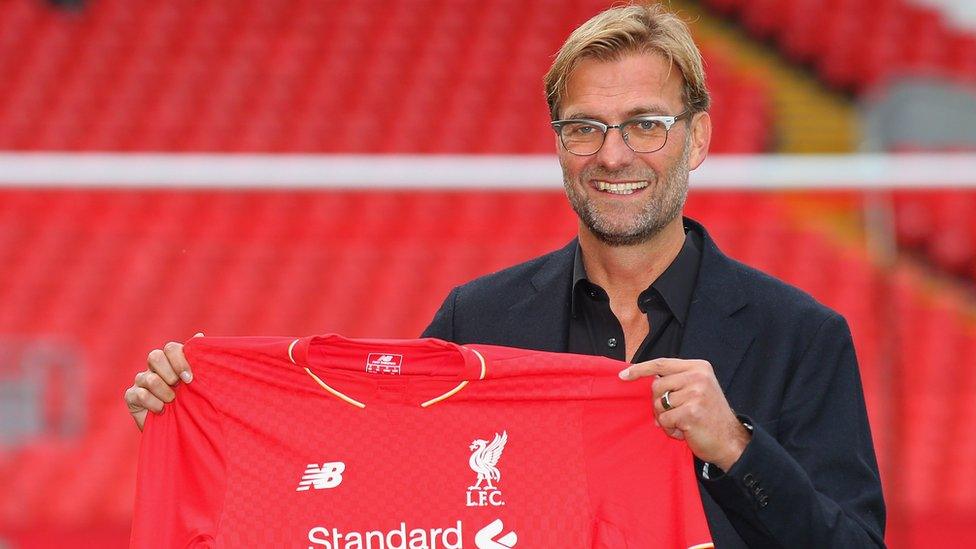Five questions about what is happening in Redcar
- Published
Martin met with some kids in Redcar to find out how they have been affected
The closure of the steelworks in Redcar, in North East England, has left thousands of people worrying about their jobs.
The steelworks has been going for a long time and employs a lot of people who live in the seaside town.
Those who live there say closing the site will have a major impact on other businesses and families in the area.
Lots of questions have been asked about what has happened to get to this point and what it could all mean.
Here's a breakdown of some of the key questions.
How many jobs have been lost?
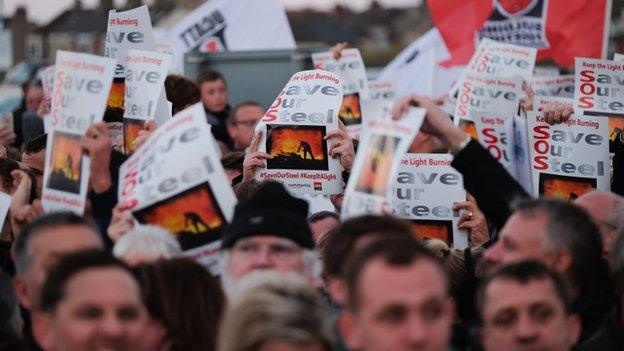
Workers and their families attended a rally to help save the Steelworks.
Local MPs say that around 2,200 people will lose their jobs as a result of the steelworks closing.
People living in Redcar are worried because the steelworks employ a lot of people from the town.
The North East has the highest unemployment in England and many say there aren't many other jobs available.
There are also concerns that closure will affect the thousands of other contractors and local companies, who rely on the steelworks for business, from cleaners to the people who own nearby shops that sell food at lunch time.
The government's business secretary Sajid Javid has said the government will help those affected by offering help and support to people to find new jobs.
How long have they been going for?
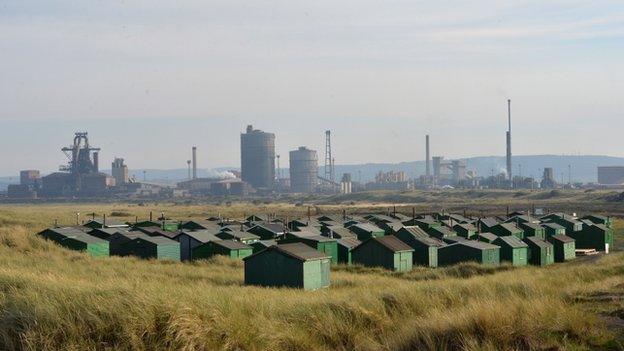
The Redcar Steelworks were opened almost 100 years ago in 1917 by Dorman Long & Company.
Steel was one of the major businesses in Britain at the time with companies supplying the material to build some of the world's most famous structures.
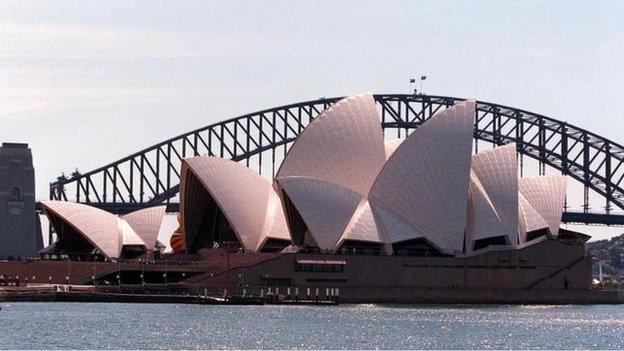
The Sydney Harbour Bridge in Australia was made using steel from Redcar steelworks.
Redcar has the second biggest blast furnace in Europe, and the steel made there was used to build the Sydney Harbour Bridge in Australia, and the Tyne Bridge in Newcastle, in England among others.
The demand for British steel all over the world meant there were hundreds and thousands of jobs available in the industry.
Who owns the steelworks?
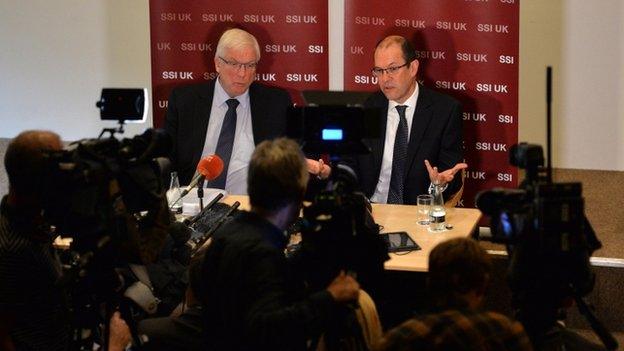
Two directors from the company who own Redcar Steelworks speak at a press conference
After changing hands a few times, and closing briefly in 2010, a Thai company called Sahaviriya Steel Industries (SSI) stepped in and bought Redcar Steelworks in February 2011.
When it first started in 1917 it was owned by local company Dorman Long before becoming part of British Steel Corporation in the 1960s.
From the late 1980s onwards it was owned by a number of different private companies.
The Thai company SSI is the largest steel sheet producer in South East Asia and make around four million tonnes of hot rolled steel a year.
Why is it closing?
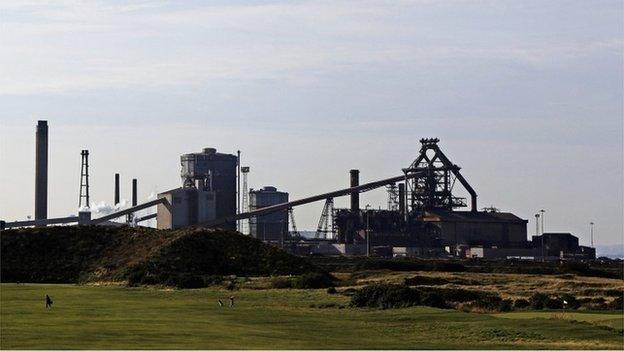
This is an answer no one can agree on.
Earlier this month SSI announced they were having trouble keeping the factory going, as not many people around the world were buying their steel anymore.
People think this could be for a number of different reasons, including that big buyers are getting their steel from other steelworks around the world, who are selling it for a cheaper price.
However, the people who work at the steelworks dispute that and say things could improve soon if they got a bit of help from the government to keep things going.
The company decided to try and sell the steelworks to other possible buyers, as they said they could no longer afford to keep it running.
But on Monday the company announced that no buyers had come forward, and the Redcar Steelworks would have to be closed.
Has anything like this happened before?
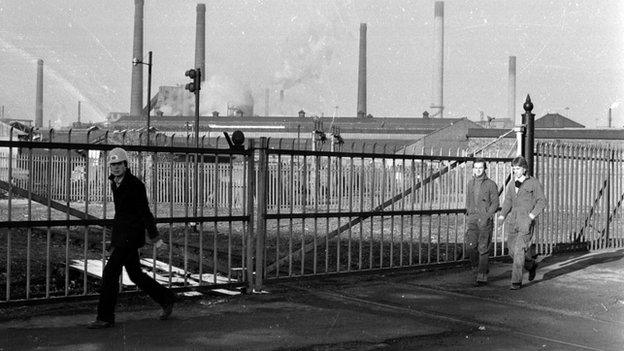
Workers outside the Corby Steelworks in 1950
Now that Redcar has closed its doors, there are only two steelworks sites left in the UK.
One is in Port Talbort, in Wales, and the other is in Scunthorpe, in England.
In the past when Steelworks have closed it has had a big impact on the towns and people who live near them.
An example of this is when the Corby Steelworks closed in Northamptonshire in the early 1980s.
Around 11,000 people lost their jobs and that meant about three out of 10 people in the town could not find work.
When Scotland's Ravenscraig Steelworks was closed in 1992 it was eventually knocked down and lots of people lost their jobs. Many other businesses who relied on the steelworks also closed.
However there is now a project in Ravenscraig to help transform the area where the Steelworks used to be, into a new town.
- Published3 February 2015
- Published13 October 2015
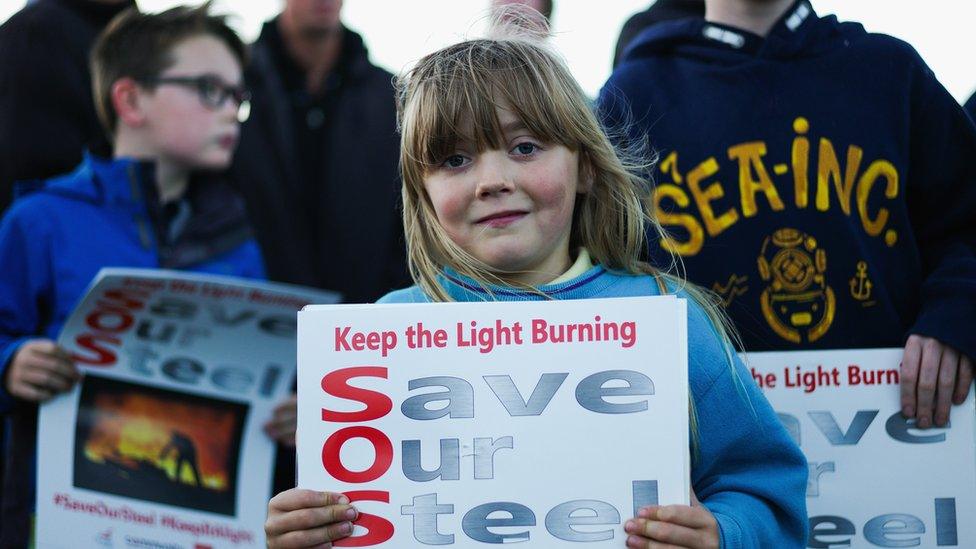
- Published29 September 2015

- Published9 October 2015

- Published9 October 2015
